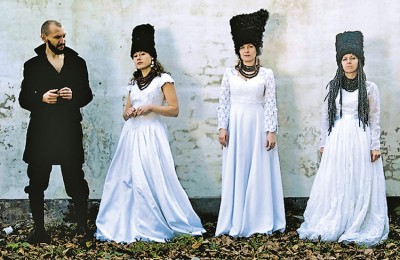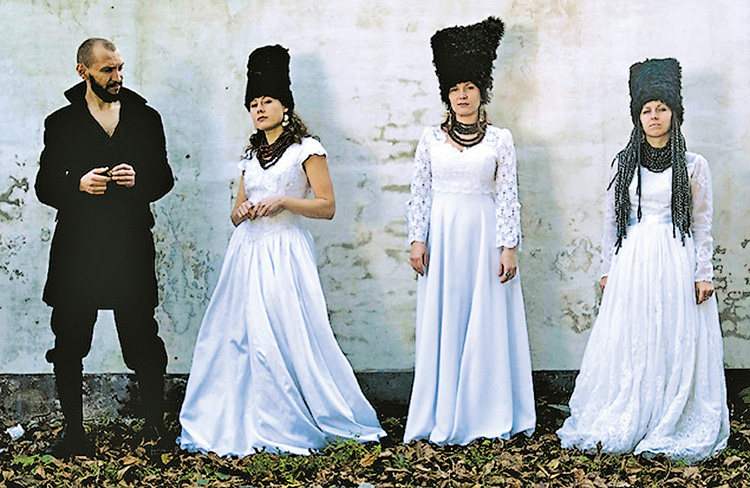
As I sat in Sixth & I Historic Synagogue the night before the start of Passover, I was surrounded by a sea of hipsters swagging SovJew, or Soviet Jewish. They were clamoring around, speaking in fast- paced Russian, to hear the self-proclaimed “ethno-chaos” of the Ukrainian folk fusion band DahkaBrahka. All around me, I heard snippets of kibitzing about the following night of Passover mixed with overall excitement about the music of the night.
As a young girl raised in “Moco” (Montgomery County, Maryland), I admired the Russian mafia princess dresses my Russian-born cousins sported, which they referred to as their “SovJew swag.” The same fashion I once admired on them, I saw at the concert: gold and black mini dresses with matching hoop earrings, berets, bold kohl cat-eye makeup, little black dresses, and a lot of other fashionable outfits I’ve seen at my favorite little black dress store, Bebe.
DahkaBrahka, much like the Israeli modern klezmer band, Balkan Beat Box, work together in a cohesive way like a Batucada, a fast-paced Brazilian samba. The musicians of DahkaBrahka—Nina Garenteska, Marko Halanevych, and Iryna Koyalenko—all sing, rap, and play multiple instruments. There is no one front “person.” Instead, they work in a cohesive manner.
As the trio began their first track, “Specially for You,” I was swept away into the mythical world of Balkan funk. Infused within the sonic beats and Russian rapping, synthesized into the funky Arab, Russian, and soulful instrumentals, are melodies often heard in traditional Balkan music that ushered me back to my mischpucha’s roots in Mother Russia. My safta, a staunch Zionist born in Odessa, saw Israel as the salvation of her Jewish identity. Besides a love of vodka and recipes from the old country, she left her Russian identify behind. As young Jews in America can these Russian fusion bands can bring out a new cultural appreciation for our Russian roots.
Earlier that day, I helped my Safta Fania make the Jewish soul food staples for our Passover Seder, complete with borscht; matzo ball soup; and an olive oil, vodka, and marinated cucumber salad recipe dating all the way back to her days in Odessa. Much like cooking matzo ball soup with my safta (like generations of balabustas before me), the songs of DhakraBrakha are a mesh of new and old worlds. In Ukrainian, the world DakhaBrakha itself means “give/take,” the dynamic that is, after all, one of the most beautiful aspects of Judaism. As Jews, we give and take different traditions and, over time, make new ones of our own.
Michele Amira is a student at the University of Maryland.

